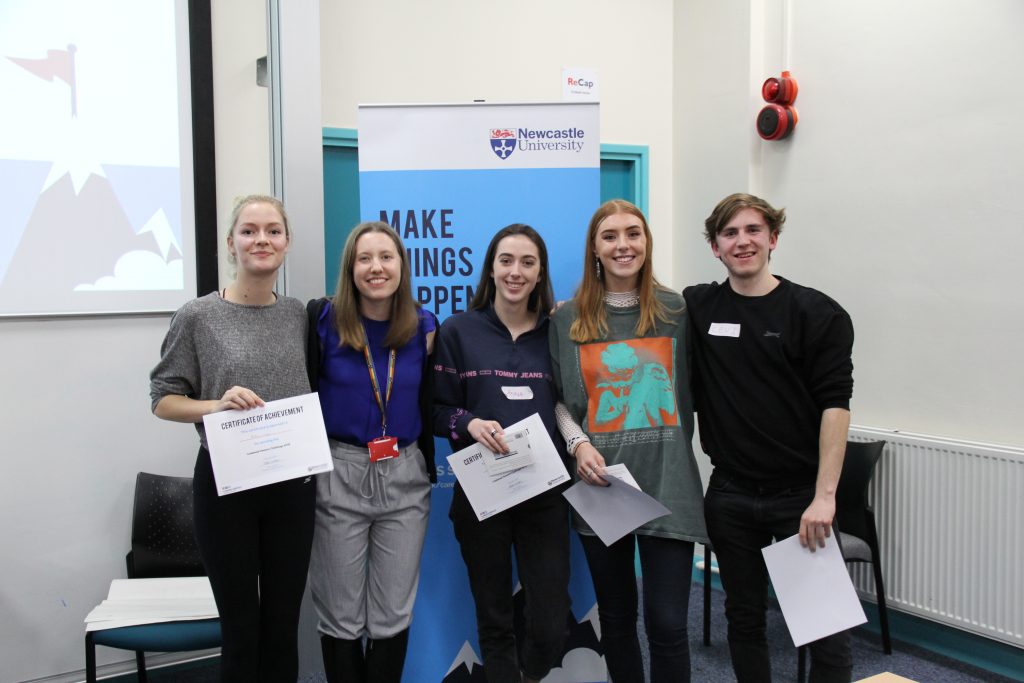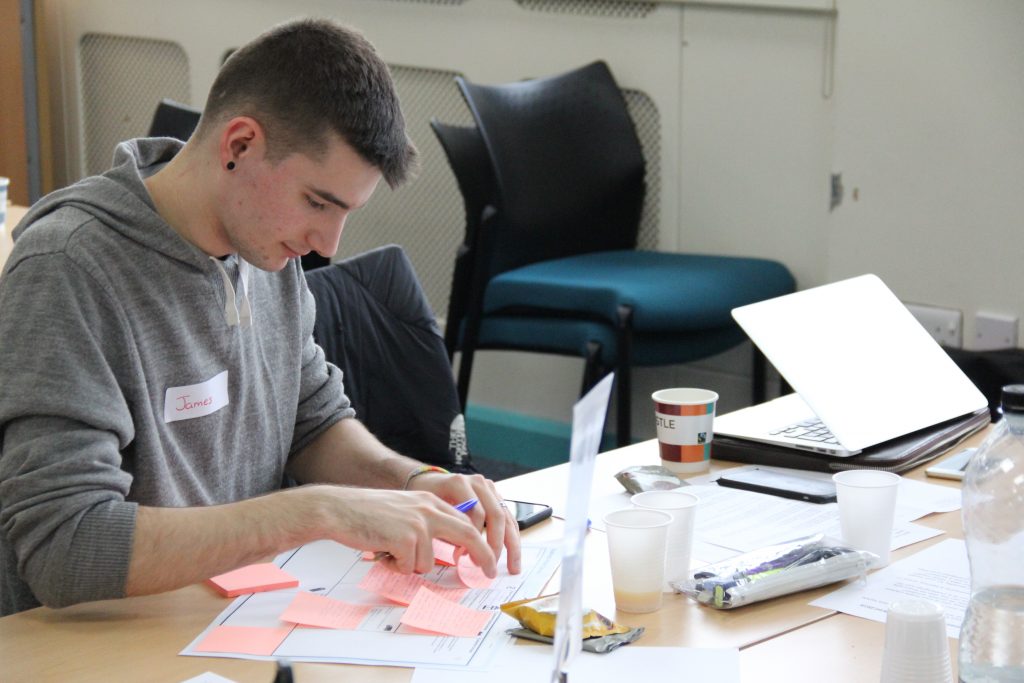Amelia Reeves, Enterprise Adviser
Careers Service
Professional Services
What did you do?
Creativity and Innovation challenges are interactive, intensive, competitive student events that the Enterprise Team run with a variety of disciplines. Students are put into teams and presented with the opportunity to work collaboratively on a real life ‘problem’ that they need to solve through developing a product, service or intervention. Read on to find out what happened in Combined Honours…
Graduate Framework
This approach develops the following attributes:
- Socially Responsible
- Future focused
- Resilient
- Critical Thinkers
- Confident
- Creative, Innovative and Enterprising
- Curious
- Collaborative
- Engaged
Staff can find out more about the Graduate Framework on the University intranet.
Who is involved?
Enterprise Team (careers service)
Combined Honours Academics
Combined Honours Alumni
External Organisation – (Waroeng Indonesia a start-up founded by a Combined Honours graduate and an Architecture graduate)

How did you do it?
All Creativity and Innovation challenges work with an external organisation who provide the provocation for the students to work on to enable the students to have the potential of creating solutions that could be implemented in real life. In this case the provocation for the Challenge was set by Waroeng Indonesia and based upon a problem that the start-up founders were facing. It’s crucial for the external organisation to have strong links to the discipline of study to ensure students will be passionate about the problem that they are working on and have base line knowledge to apply on the day.
Provocation:
“Develop an idea to help Waroeng Indonesia tackle social isolation through food.”
Key considerations for your idea:
- Idea Type – are you developing a product, service, event or campaign?
- Audience – precisely who is your target market within those who may be socially isolated?
- Sustainability – how can the idea be financially sustainable and not run at a challenging cost for Waroeng?
- Impact – what are the key benefits for your target market by engaging with your idea? What impact could it trigger? How will you know it worked?
- SMART – Specific, Measurable, Achievable, Realistic, Timely
Structure of the Day:
The challenge ran with 21 students (4 stage 1, 9 stage 2, 8 stage 3) between 12:30 – 18:00 on a Wednesday afternoon. It took place on campus STB 3.04 (T.12).
Students were introduced to the provocation and taken through idea generation and idea development techniques by the Enterprise Adviser. They also received a 15 minute feedback slot from an ‘Expert Panel’ made up of CH staff, enterprise staff and the start-up founders to further develop their ideas. They then were given pitching tips and time to develop their ideas into a pitch to present to a judging panel. The students also took part in a student vote for the presentation they thought was the most impressive. After the winners of the judges vote and student vote were announced there was time for networking for students to celebrate and talk more with alumni.
Student Voice
‘[I liked] working in an interactive real life environment’
‘Learning the divergent/convergent thinking strategies was so useful!’
‘It encouraged you to speak to new people, be more creative and think innovatively, challenge yourself, it pushed me out of my comfort zone.’
‘[I liked] having the chance to solve a real business problem.’
‘Team work and being able to collaborate with other people from the Combined Honours department was really good.’
Feedback from Combined Honours Students
Why did you do it?
1. Fast paced, intensive skill development in:
- Idea generation
- Problem solving
- Innovation
- Commercial acumen
- Strategic thinking
- Communication
- Team work
- Pitching
2. Opportunities for students to embellish CV’s / find interview examples e.g. “tell me a time when you worked successfully as part of a team”.
3. Chance to network with alumni and find out more about potential career paths.
4. Potential to find work experience – with the external organisation.
5. Potential to find self-employment opportunities – should the students develop ideas that they would like to develop outside of the challenge.
Does it work?
- The winning team was offered an internship with Waroeng Indonesia to develop the idea they created within the challenge and see if it could be implemented in real life.
- The winning team were nominated for Enterprising Team of the Year and won this award at Newcastle University Enterprise and Entrepreneurship Awards 2019 as part of Celebrating Success.
- 100% of students would recommend for students next year.
- 19 / 21 agreed they had enhanced their team working skills.
- 20 / 21 understood how the challenge helped to prepare them for the world of work /understood more about the professional attributes required of them /agreed they enhanced their problem solving, strategic thinking, persuasiveness and commercial acumen skills.
- 18 / 21 agreed they had enhanced their communication and presentation skills.
Interested in finding out more?
Challenges can be developed in any area of the University. If you would like support to develop a challenge don’t hesitate to get in touch with the Careers Service.
Contact details
 Amelia Reeves, Enterprise Adviser, Careers Service
Amelia Reeves, Enterprise Adviser, Careers Service

